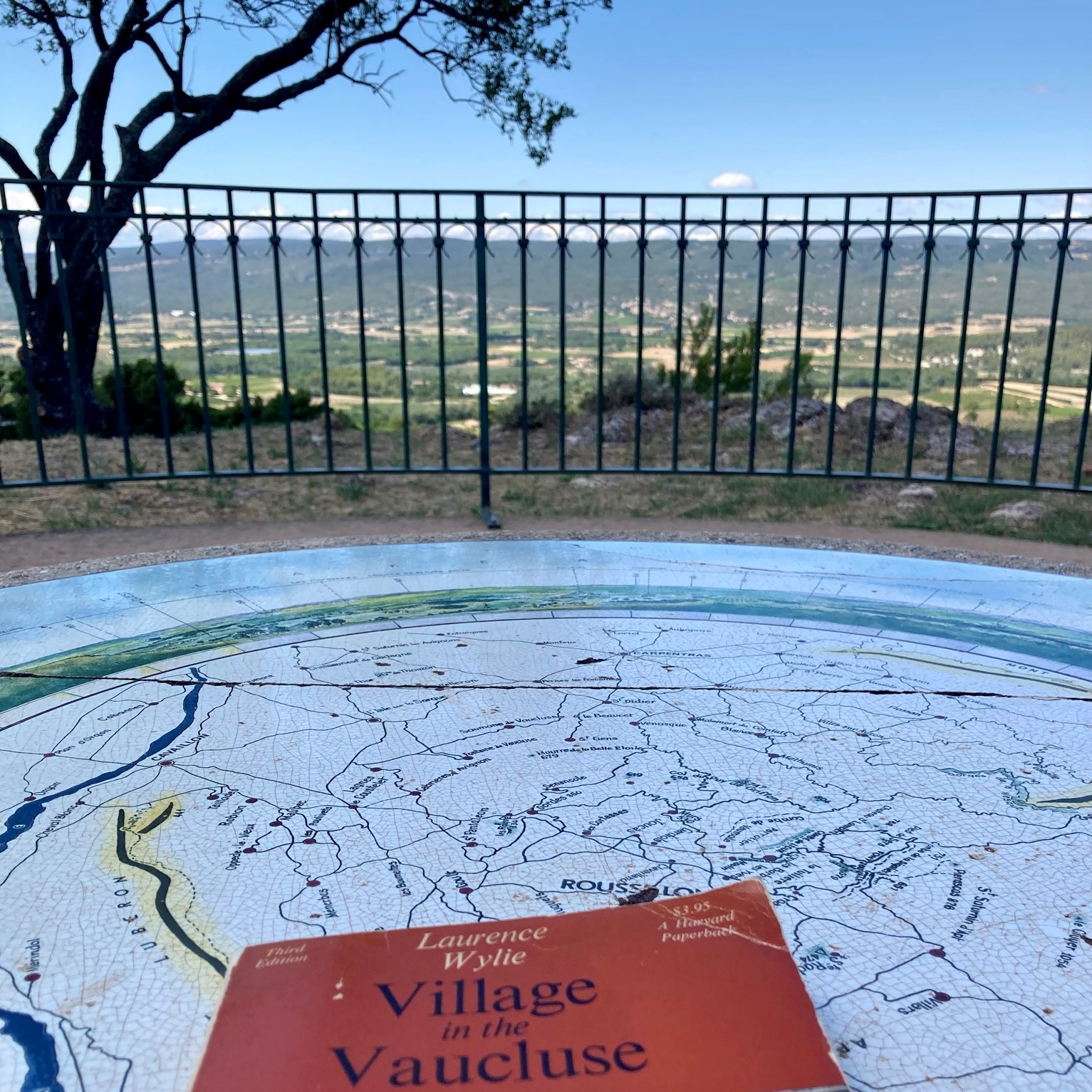Roussillon, progress and nostalgia

📍 🇫🇷 Roussillon, progress and nostalgia
Sometimes, an anthropologist gets it for good. When American scholar Lawrence Wylie (1909-1996) embarked for the village of Roussillon right after World War II, no one could have predicted the success of his monograph-book.
A Professor at Harvard University, he wanted to understand the impact of post-war economic transformations in a country (France) that was still dominated by rural life - having entered the industrial revolution later than others. And Roussillon was the ideal spot for him “as it ranked in the middle in every way - density of population, proportion of urban population, birth rate, electoral choices…”
So, in 1950, he settled with his wife and two kids in a house down the rue Richard Casteau. There he understood that the village had already been through one major shock at the end of the 19th century - cheap synthetic ochre from the United States led to the closure of the natural ochre quarries in Roussillon, which had suddenly become too unprofitable for exploitation. Globalization began to impact these modest Provencal countrymen.
But Wylie remarked that Roussillon was “a hard-working, productive community that eventually accepted the inevitability of change”. Coming back in the 1960s and 1970s, he was impressed by the rise of tourism and by new agricultural techniques - nostalgia overcome by the necessity of adaptation.
Yet, what sort of adaptation?
“The unity of the village is now gone, he noticed after a 1973 visit, as the annual turnover of the population is 5% approximately”. With most young people leaving to bigger towns in the region - Apt or Marseille - and Parisians buying summer houses there, “is it still possible to pass on a coherent heritage?”, Wylie asked.
Albert Camus, French novelist, shared the same impression in his diaries after a short visit in July 1957: "gutted barns, overgrown with nettles. Rush towards the cities, the factories, towards collective pleasures. Here dies a civilization around us…"
The old peasantry is gone indeed but such charm still at Roussillon. And new life. Worth a visit, whatever Camus or Wylie may say.
____ Sources ____
>> Albert Camus, "Carnets", 1957
>> Lawrence Wylie, “Village in the Vaucluse”, 1964
